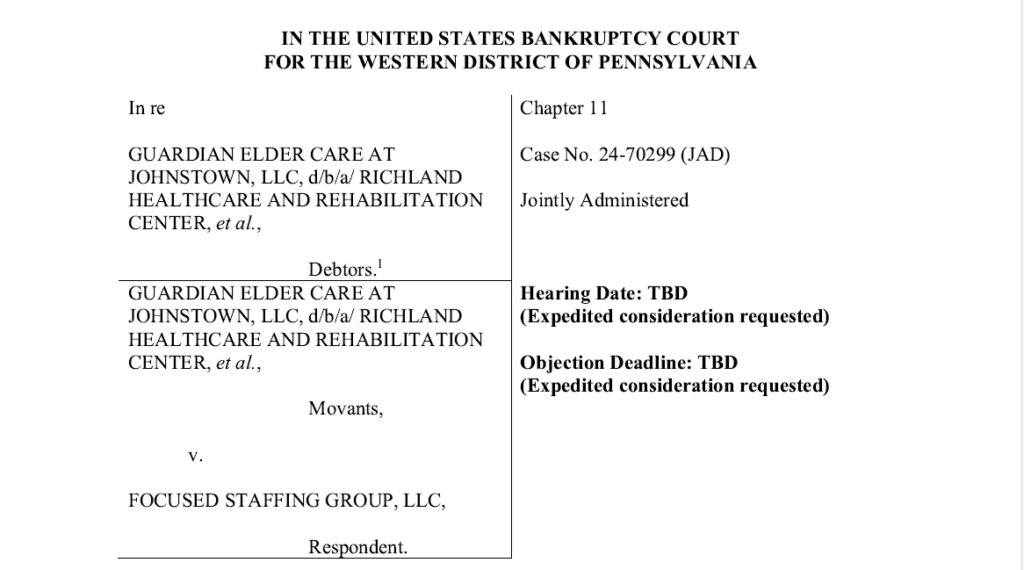Introduction
In the healthcare industry, skilled nursing facilities (SNFs) face immense challenges to provide essential care. Recently, concerns have emerged about the conduct of some staffing agencies. These agencies, once seen as crucial partners, now face accusations of exploiting financially vulnerable facilities. The conflict between Guardian Elder Care at Johnstown, LLC, and Focused Staffing Group, LLC (FSG) highlights these troubling allegations.
Guardian Elder Care’s Financial Struggles
Guardian Elder Care, filed for Chapter 11 bankruptcy. This move aimed to reorganize its finances while continuing care services. Guardian, a long-standing provider, has supported many families with essential services for elderly residents. Financial pressures, however, forced this difficult but necessary decision to ensure the facility’s survival.
Staffing Agencies: Support or Exploitation?
Focused Staffing Group provided healthcare professionals essential to Guardian’s operations. After the bankruptcy filing, FSG allegedly terminated its agreement, citing unpaid prepetition balances. This action could violate the automatic stay, a legal protection that prevents creditor actions during bankruptcy.
Accusations of Exploitation
Observers suggest that FSG’s actions may reflect a broader pattern in the industry. Some accuse staffing agencies of exploiting struggling SNFs by charging high fees and threatening to withdraw services. These tactics, if true, prioritize profit over patient care and disregard the bankruptcy process, which ensures payment for services.
Impact on Patient Care
The alleged withdrawal of staff by FSG has caused significant problems at Guardian’s Beaver Valley Healthcare and Rehabilitation Center. The facility now faces potential fines and penalties from regulatory bodies due to staffing shortages. The residents, many of whom are elderly, risk losing the quality care they need.
Bankruptcy Process and Legal Protections
The bankruptcy process assures payment to creditors, including staffing agencies. FSG’s alleged decision to terminate services, despite this assurance, raises concerns. Some suggest this move aimed to exploit Guardian’s vulnerable position, not protect financial interests.
The Need for Accountability
These allegations highlight the need for greater scrutiny of staffing agencies. While they are vital to SNFs, their actions must align with legal and ethical standards. If these practices are proven, they must be addressed to protect both the facilities and the residents who rely on them.
Conclusion
The dispute between Guardian Elder Care and FSG raises serious questions about the conduct of staffing agencies. While the allegations await resolution in court, they emphasize the potential risks posed by predatory practices. The healthcare community must demand transparency, accountability, and a commitment to patient care.


